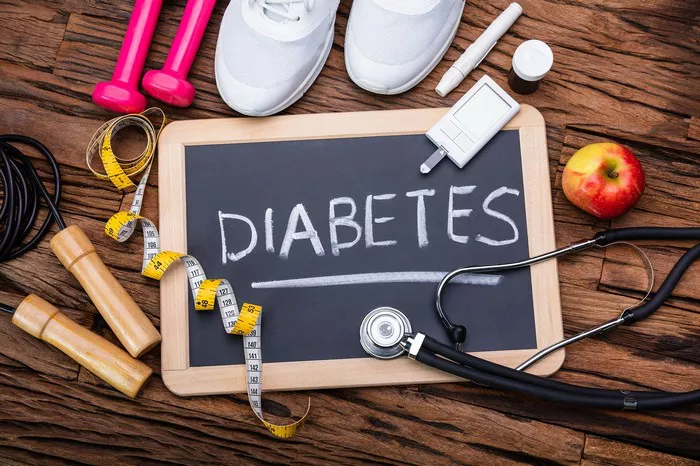Untreated type 1 diabetes poses significant risks to both physical health and emotional well-being. Without proper management, the persistent elevation of blood sugar levels can lead to a range of symptoms and complications that can impact every aspect of an individual’s life. In this comprehensive article, we explore the experience of untreated type 1 diabetes, shedding light on the physical sensations, emotional challenges, and potential consequences faced by those living with this chronic condition.
Understanding Type 1 Diabetes: A Brief Overview
Type 1 diabetes is an autoimmune condition characterized by the destruction of insulin-producing beta cells in the pancreas. Without insulin, the body is unable to regulate blood sugar levels, leading to hyperglycemia (high blood sugar). Unlike type 2 diabetes, which is often associated with lifestyle factors such as obesity and sedentary behavior, type 1 diabetes is not preventable and typically manifests during childhood or adolescence.
Physical Sensations of Untreated Type 1 Diabetes
Living with untreated type 1 diabetes can result in a range of physical sensations and symptoms that affect daily life and overall well-being. Some common experiences include:
- Excessive Thirst (Polydipsia): Persistent thirst is a hallmark symptom of untreated type 1 diabetes. As blood sugar levels rise, the body attempts to dilute the excess glucose by drawing water from surrounding tissues, leading to dehydration and intense thirst that cannot be quenched by drinking water alone.
- Frequent Urination (Polyuria): Elevated blood sugar levels cause the kidneys to filter excess glucose into the urine, resulting in increased urine production and frequent trips to the bathroom. Individuals may experience urgency, discomfort, and disrupted sleep patterns due to nighttime awakenings to urinate.
- Fatigue and Weakness: Without adequate insulin to facilitate glucose uptake into cells, the body’s cells are unable to obtain the energy they need to function properly. As a result, individuals with untreated type 1 diabetes may experience persistent fatigue, lethargy, and weakness, making it difficult to engage in daily activities and maintain productivity.
- Unexplained Weight Loss: Despite adequate or increased food intake, untreated type 1 diabetes can cause unintentional weight loss due to the loss of calories through urine and the breakdown of muscle and fat stores for energy. Individuals may notice gradual weight loss over time, accompanied by increased hunger and changes in body composition.
- Blurry Vision: High blood sugar levels can cause changes in the shape of the lens in the eye, leading to blurred vision or fluctuations in eyesight. Individuals may experience difficulty focusing, especially during periods of hyperglycemia, which can interfere with daily tasks such as reading, driving, or using electronic devices.
- Ketoacidosis: Diabetic ketoacidosis (DKA) is a life-threatening complication of untreated or inadequately managed type 1 diabetes characterized by hyperglycemia, ketosis, and metabolic acidosis. Symptoms of DKA may include fruity-scented breath, rapid breathing, nausea, vomiting, abdominal pain, and confusion. Without prompt medical intervention, DKA can lead to coma and death.
Emotional Challenges of Untreated Type 1 Diabetes
In addition to the physical symptoms and sensations associated with untreated type 1 diabetes, individuals may also face significant emotional challenges that impact their quality of life and psychological well-being. Some common emotional experiences include:
- Fear and Anxiety: The prospect of living with a chronic condition like type 1 diabetes can be daunting and overwhelming, particularly for those who are newly diagnosed or struggling to manage their symptoms. Fear of complications, uncertainty about the future, and anxiety about managing blood sugar levels can contribute to feelings of stress and anxiety.
- Guilt and Shame: Individuals with untreated type 1 diabetes may experience feelings of guilt or shame about their condition, especially if they perceive it as a failure to properly manage their health or adhere to treatment recommendations. These feelings can be exacerbated by societal misconceptions about diabetes and the stigma associated with the condition.
- Depression: Chronic illness can take a toll on mental health, leading to feelings of sadness, hopelessness, and despair. Untreated type 1 diabetes may contribute to depression due to the physical symptoms, lifestyle restrictions, and emotional challenges associated with the condition. Depression can further impact self-care behaviors and quality of life, creating a vicious cycle of illness and distress.
- Social Isolation: Managing type 1 diabetes requires constant vigilance and attention to blood sugar levels, dietary choices, medication regimens, and lifestyle factors. This can make it challenging for individuals to participate in social activities, travel, or engage in hobbies and interests without feeling self-conscious or restricted by their condition. Social isolation can exacerbate feelings of loneliness, alienation, and disconnection from others.
- Financial Strain: The financial burden of managing type 1 diabetes can be significant, particularly for individuals without adequate health insurance coverage or access to affordable healthcare services and supplies. The costs associated with insulin, blood glucose monitoring devices, medication, doctor’s visits, and emergency care can place a strain on individuals and their families, leading to financial stress and hardship.
Consequences of Untreated Type 1 Diabetes
Untreated type 1 diabetes poses serious risks to both short-term and long-term health, potentially leading to a range of complications and adverse outcomes if left unmanaged. Some consequences of untreated type 1 diabetes include:
- Diabetic Ketoacidosis (DKA): Without insulin therapy to regulate blood sugar levels, individuals with type 1 diabetes are at risk of developing DKA, a life-threatening condition characterized by severe hyperglycemia, ketosis, and metabolic acidosis. DKA requires immediate medical intervention to restore electrolyte balance, correct acidosis, and prevent complications such as coma and death.
- Hyperglycemia and Hypoglycemia: Uncontrolled hyperglycemia (high blood sugar) can lead to a range of acute and chronic complications, including diabetic retinopathy, neuropathy, nephropathy, cardiovascular disease, and stroke. In addition, untreated type 1 diabetes increases the risk of hypoglycemia (low blood sugar), which can cause symptoms such as dizziness, confusion, seizures, and loss of consciousness if left untreated.
- Long-Term Complications: Prolonged exposure to elevated blood sugar levels can damage blood vessels and organs throughout the body, leading to long-term complications such as heart disease, stroke, kidney disease, nerve damage, foot ulcers, and vision loss. These complications can significantly impact quality of life, functional ability, and life expectancy if not detected and managed early.
- Mental Health Impacts: Untreated type 1 diabetes can exacerbate existing mental health conditions such as depression, anxiety, and eating disorders, as well as increase the risk of developing new psychological issues. The emotional toll of living with an untreated chronic illness can lead to decreased self-esteem, impaired coping skills, and diminished overall well-being.
Seeking Help and Treatment for Type 1 Diabetes
Recognizing the signs and symptoms of untreated type 1 diabetes is crucial for prompt diagnosis and intervention to prevent complications and optimize outcomes. If you or someone you know is experiencing symptoms of type 1 diabetes or has concerns about their health, it’s essential to seek medical attention from a healthcare professional for proper evaluation and testing.
Treatment for type 1 diabetes typically involves insulin therapy, blood glucose monitoring, dietary management, regular physical activity, and ongoing medical care. With proper treatment and support, individuals with type 1 diabetes can effectively manage their condition, minimize complications, and lead healthy, fulfilling lives.
Conclusion
In conclusion, untreated type 1 diabetes can have profound physical, emotional, and psychological impacts on individuals, affecting every aspect of their lives. From the physical sensations of thirst, fatigue, and weight loss to the emotional challenges of fear, guilt, and depression, untreated type 1 diabetes can significantly diminish quality of life and increase the risk of complications and adverse outcomes. By recognizing the signs and symptoms of type 1 diabetes and seeking timely medical intervention, individuals can take control of their health and well-being, effectively managing their condition and reducing the risk of long-term complications.


























